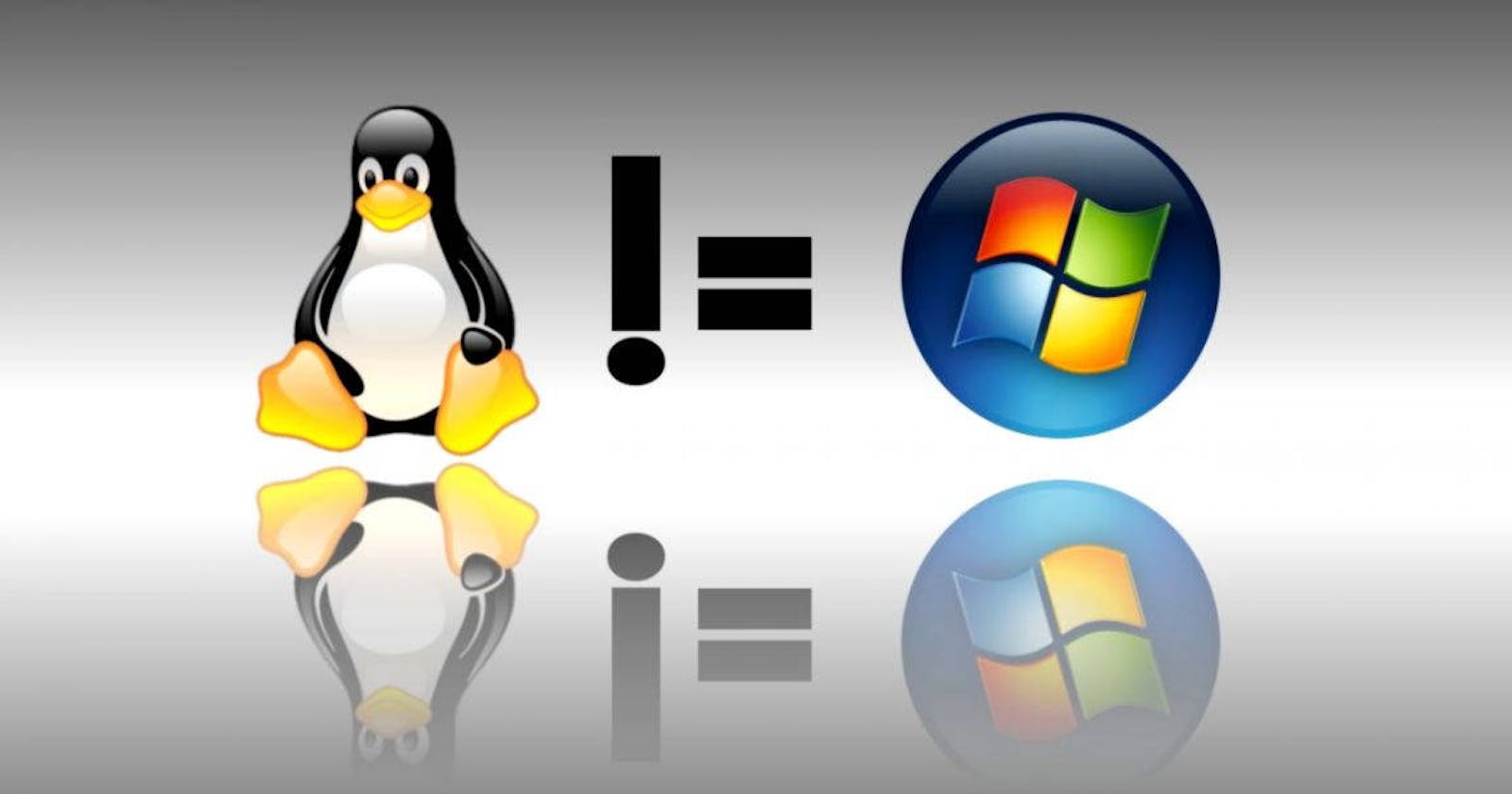What is Linux?
Linux is an operating system just like Windows, IOS, MacOS etc. The operating system is software that manages all hardware resources. Linux is an open-source operating system based on the Unix operating system, it was developed by Linus Torvalds in 1991. In today's world Linux is one of the most popular and widely used operating systems in the world. One of the most popular platforms, Android is also powered by the Linux operating system. Unlike other operating systems like Windows/MacOS, Linux is freely available to everyone to use, modify or contribute to it. Linux is highly customisable.
What is a distribution?
Linux has several different versions to suit its diverse user base. You will find different flavours of Linux to match your needs no matter you are new to Linux or you are a Linux user for a long time.

Popular Linux distributions are:
Ubuntu
Fedora
Debian
Solus
Linux Mint
Kali Linux
Each distribution has a different take on the desktop. Some opt for very modern user interfaces (such as GNOME) while others opt for traditional interfaces (such as KDE).
You can check out the top 100 distributions on Distrowatch.
Which is better Linux or Windows?
Linux is an open-source operating system that is free to use and modify. It is highly customizable and offers a wide range of distributions, each for specific needs. Linux is also known for its security and stability, as well as its command-line interface, which can be more efficient for experienced users. However, some software and hardware may not be compatible with Linux.

Windows, on the other hand, is an operating system that is widely used in the business world. It is known for its user-friendly interface, compatibility with a wide range of software and hardware, and extensive support resources. However, Windows is not free, and some users have raised concerns about its security and privacy.
Advantages of Linux over Windows:
Open source: One of the most significant advantages of Linux is that it is open source, which means that users can access the source code and can modify it according to their needs. This makes Linux highly customizable and adaptable to different situations.
Security: Linux is known for its robust security features, which make it less at risk of viruses and malware. Linux is designed with security as a priority, and users have more control over the security settings of their systems.
Windows is an operating system, whose users do not have access to the source code. This lack of transparency can make it difficult for security experts to identify and address security vulnerabilities. Windows is a popular target for malware and cyberattacks due to its popularity and widespread use. Cybercriminals are always looking for vulnerabilities in Windows to exploit.Flexibility: Linux is highly flexible and can be used for a wide range of purposes, from running desktop applications to powering servers and embedded systems.
Stability: Linux is known for its stability and reliability, which makes it a popular choice for servers and enterprise environments. Linux systems can run for long periods without needing to be rebooted, which is ideal for mission-critical systems.
Mission-critical systems are computer systems which can affect the business or society if they fail. A few examples are online banking systems, Railway/Aircraft operating and control systems etc.
Some of the advantages of Windows over Linux include:
Ease of use: Windows is generally considered to be user-friendly and easier to use than Linux. Windows has an interface that most people are used to, and there is a wide range of software available that is compatible with the operating system.
Software compatibility: Windows has a vast selection of software available, which is compatible with the operating system. This makes it easier for users to find and install the applications they need.
Gaming: Windows is still the operating system for gamers, as most games are developed for and run on the Windows platform.
Stats:
The usage of Linux and Windows varies depending on the specific context and application. Here are some general examples of who might use Linux and who might use Windows:
Desktop users: Windows is still the dominant operating system for desktop users, with a market share of around 77%, according to StatCounter Global Stats. This is due in part to the fact that Windows has been around for a long time and is familiar to many users. However, Linux is becoming more popular among desktop users, particularly for those who value customization and privacy.
Servers: Linux is the dominant operating system for servers, with a market share of around 70%, according to W3Techs. This is due to Linux's stability, security, and flexibility, which make it ideal for running web servers, database servers, and other mission-critical applications.
Developers: Linux is a popular choice among developers, particularly for those working with open-source software. This is because Linux is open-source itself, and provides a wide range of tools and libraries that are useful for development.
In summary, while Windows is still the dominant operating system for desktop users, Linux is becoming popular among a wide range of users, particularly for those who value customization, security, and flexibility. Linux is particularly dominant for servers and developers.
The choice between Linux and Windows depends on your specific needs and preferences. If you value customizability, stability, and security, and are willing to invest time in learning a new operating system, Linux may be the better choice. If you prioritize ease of use, compatibility, and support, and are willing to pay for an operating system, Windows may be the better choice. Ultimately, it is up to you to determine which operating system best fits your requirements.
